When I was gathering this list of helpful books about raising girls, it occurred to me that gender is still very much a thing. It’s quite hard to get away from. So, I respect that many of you will have girls who defy the ‘girl tag’ society wants to put on them. I have one of those myself. With this in mind, I have tried to gather books about raising girls that are equally mindful of not stereotyping our children.
This one too: 16 very helpful books about raising boys
The fact remains that our children are products of our society and right now our society places a lot of emphasis on gender. Whether we like it or not, it means a great deal to our kids. I won’t get into my thoughts on gender identity here – that’s a whole different article. Let’s just say that when you’re gathering books about raising girls, it’s going to come up! Less so when researching books about raising boys… and so it goes.
Criteria for selection
Enough. On with the books. I’ve read all of these and highly recommend them for parents of older kids for various reasons. My first criteria in selecting books about raising girls for this list was whether they focused on older girls or the usual 0-5 years. We have all moved well past the 0-5 years and none of us need a book that panics us about what we coulda, woulda, shoulda done. We need advice that meets us where we are.
The next thing that was important to me is having great trust in the author. How long have they been around and what have they been up to? Have they demonstrated a philosophy about gender and society in general that I can get on board with? What do they seem to value? Are they there to perpetuate stereotypes, work with them, or challenge them?
After that, I’m looking for extensive, legitimate research and practical examples. I want to see science or experience to back up their observations. Some of these recommndations are personal stories, and of course I relaxed the science rule in those cases.
Beyond that, I just want a cracking good read that’s highly relatable and authentic. So, here we go.
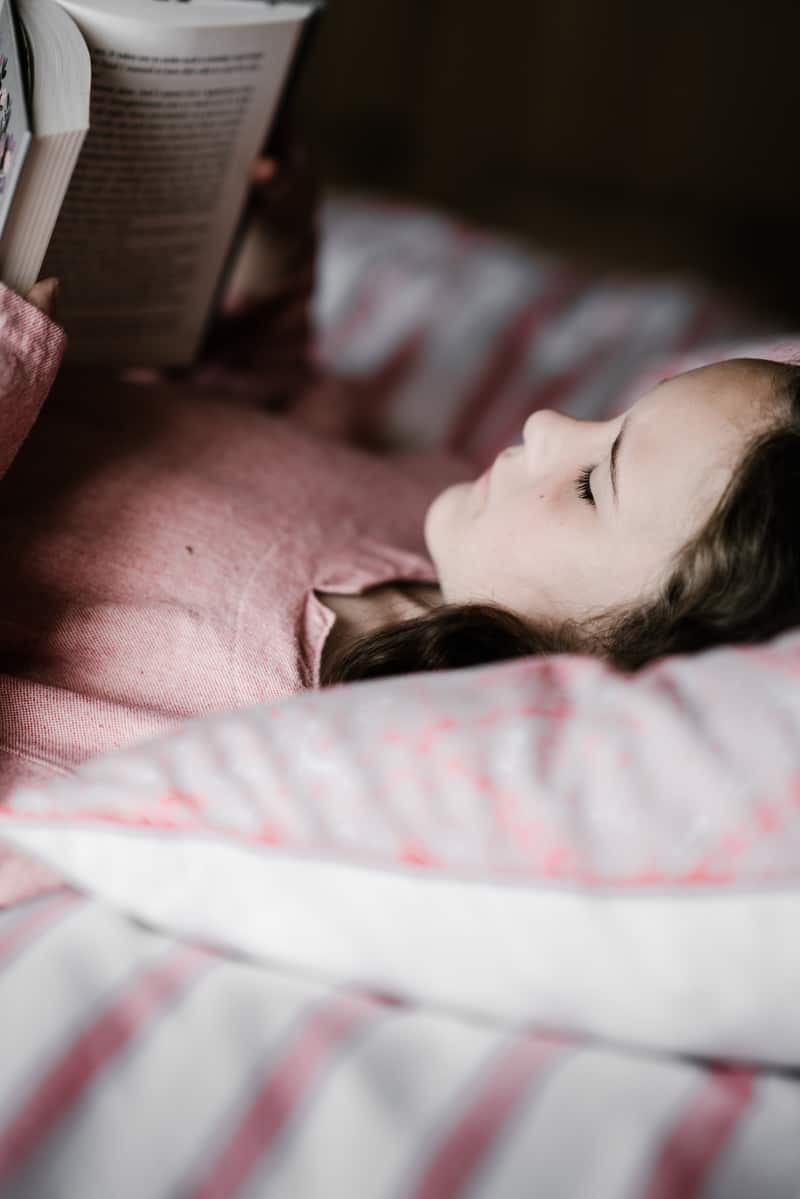
Very helpful books about raising girls
Miss-connection by Justin Coulson
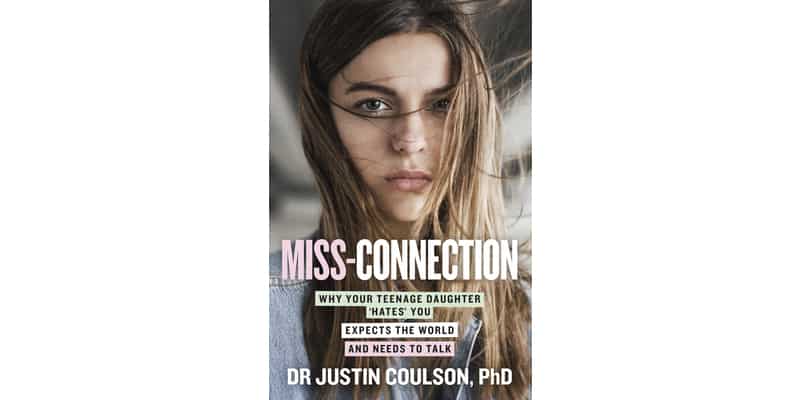
I’ve followed psychologist Dr Justin Coulson‘s work for a long time and really respect his positive parenting ethos. The man has six daughters, so when he announced he was writing a book about raising girls, I expected a good one. I’ve always interpreted Coulson’s philosophy as being that empathy and connection should be at the heart of how we parent our kids. This is never more important than when they hit the teen years. His book will help you understand your daughter’s motivations and her troubles. It will give you some good insights into “what was she thinking!?”. It will remind you that taking time to listen, rather than talk, is key. My only criticism of Coulson’s style is that his views can be a little “old-fashioned” at times, though never judgmental.
Raising Girls in the 21st Century by Steve Biddulph
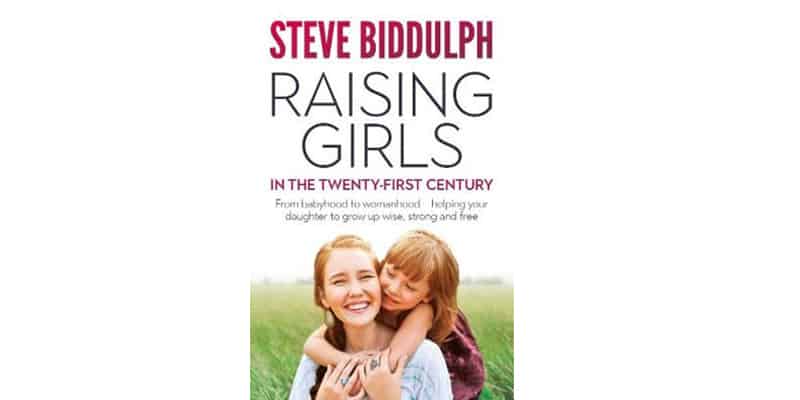
The 2013 classic Raising Girls was updated in 2019. You can trust Steve (and contributors) to do thorough, thoughtful research and deliver it in an easily-digestible way. There are a few misses for me in the book, though. By the adolescent years, there’s a tendency to stereotype girls as sassy, clichey and over-confident. Not all tween/teen girls are like that. Also, the suggestion that we should throw a party with aunts and grandma when our girl starts her first period is… well… Biddulph has clearly never been an adolescent girl getting her first period!! That’s a no from me. Otherwise, it’s full of common sense advice about managing our own behaviour so we can help our girls manage theirs.
Buy her one of these instead: 6 good books about starting your period
The Curse of the Good Girl by Rachel Simmons
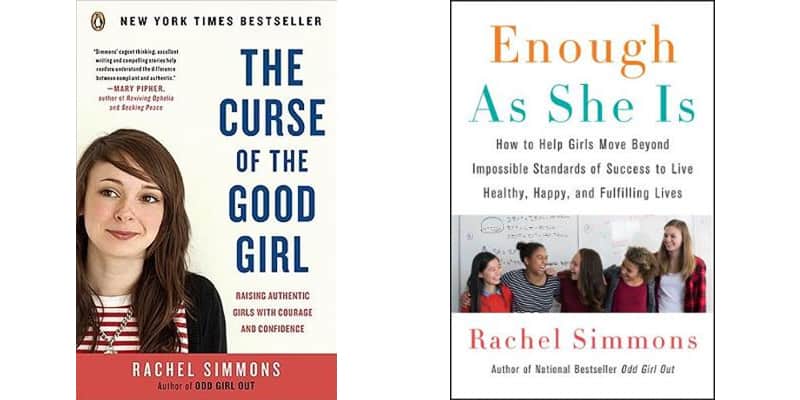
This book is a decade old this year, but sadly it’s still very relevant. I know that I am often guilty of settling for my daughters as ‘peace keepers’ rather than allowing them to express how they really feel. I’m also the mother of a boy, and I mysteriously don’t seem to expect the same kind of cooperation from him. I don’t know where that comes from! I thought I was so careful to raise my kids to all feel powerful, but there it is. Simmons book has helped me understand how I’m taking my girls’ power away (if not the ‘why’ – still don’t know the why) and what I can do to help them learn to keep it for themselves.
Enough As She Is by Rachel Simmons
Simmon’s latest book Enough As She Is is also highly recommended. This one will help you guide your daughter to turn up her inner voice and turn down the pressure from peers, media and, yes, parents. We’ve created a ‘supergirl’ culture that expects perfection from our girls at every stage. Academically, in sport and creative pursuits, girls feel expected to succeed. But while girls’ competence in every area has increased exponentially, their confidence has plummeted and ‘imposter syndrome’ has soared. Simmons offers a practical way out. She covers teaching girls self-awareness and self-compassion, understanding their intentions and motivations, and learning to love the journey rather than the destination. It’s actually a good book for teaching us mothers many of these things, too.
What I Told My Daughter edited by Nina Tassler
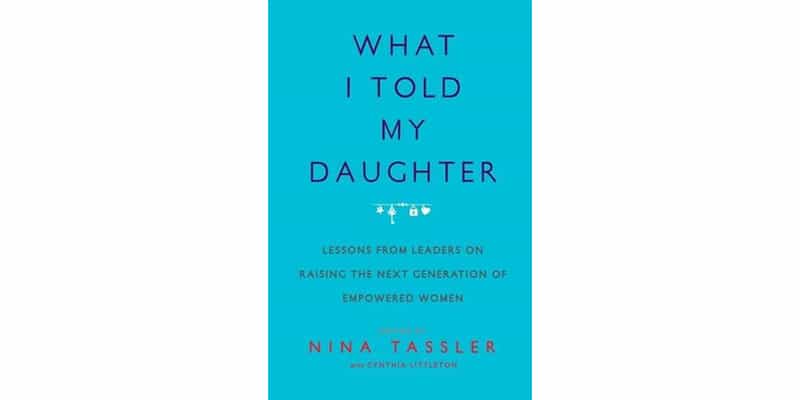
Subtitled Lessons from Leaders on Raising the Next Generation of Empowered Women, this book is like a handbook for privileged, uber-successful people who mostly want to tell our girls to ‘just be themselves’. Is it only me who finds that particularly unhelpful? That aside, there is plenty of gold to be found in many of the raw, heartfelt essays penned by notables like Madeline Albright, Whoppi Goldberg, Geena Davis and Sharon Osbourne. There is a lot of heart in this book and a lot of life lessons worth examining.
Dear Girls by Ali Wong
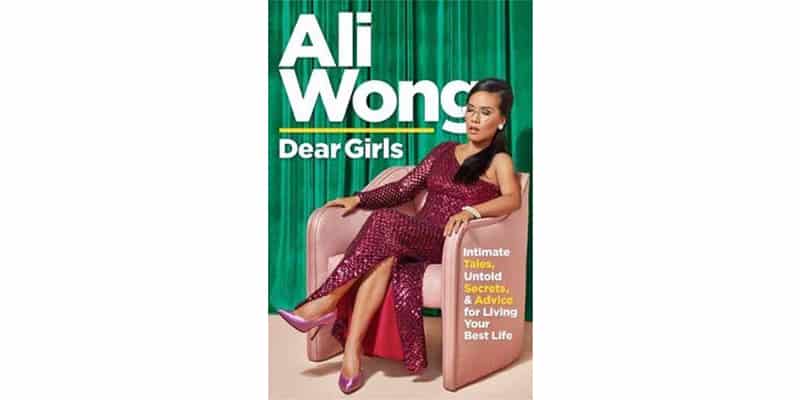
While it might seem odd to have a stand-up comedian recommended as a parenting author, hear me out. Wong hits all the right notes in her book, told as a series of letters to her daughters. She imparts wisdom on everything from feminism, to self-reliance, to sex, to failure, to keeping your hairy bush. Yup, she’s no-holds barred and makes no excuses. I picked up so many good lines to feed my own daughters from this book. On success: have “a tolerance for delayed gratification, a passion for the craft, and a willingness to fail”. On parenting: “‘You have suffered enough.’ That became my mantra for motherhood from there on out. You have suffered enough”. On life: “if you can make it easier, make it easier, and don’t feel guilty about it”. What’s not to love?
Untangled by Lisa Damour
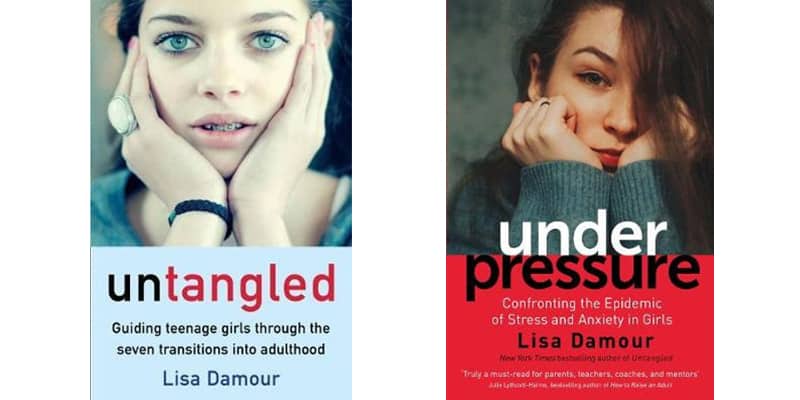
This New York Times bestseller by psychologist Dr Lisa Damour, is another excellent resource for raising teen girls. Damour has spoken to thousands of teen girls through her work at top US private school Laurel’s Center for Research on Girls. So, really, she’s really spoken to just one kind of girl, but still – her research and writing still basically make you feel it’s all going to be okay. Damour also offers realistic, practical advice on managing key conflict areas. I especially like Damour’s advice on managing power struggles – which is to say, don’t go there. Your daughter holds all the cards and you have none, simply because she is currently not at all concerned about her future and you care very deeply. Keeping everything in the day-to-day, rather than the ‘what ifs’ of the future, is a great strategy. As is making sure consequences fit the real-world.
Under Pressure by Lisa Damour
Another of Damour’s books about raising girls I recommend is her newly released Under Pressure. It’s a practical look at the skyrocketing incidence of anxiety in today’s girls. Damour calls it ‘toxic stress’ and it includes their exposure to social media, academic expectations, and porn culture. While I don’t think the book resonates as much as her first (it sits far too easily in its ‘white privilege’), it’s still a good overview of what ‘success culture’ is doing to our girls.

Princess Bitchface Syndrome 2.0 by Michael Carr-Gregg and Elly Robinson
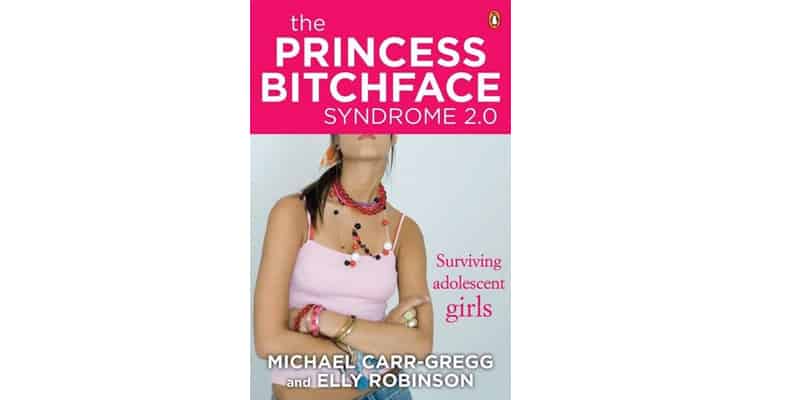
I think the reason why psychologist Dr Michael Carr-Gregg is one of Australia’s most successful parenting writers is because he rarely talks nonsense. His style is always practical, down-to-earth and realistic. In Princess Bitchface, co-written with adolescent health specialist Elly Robinson, they do have a tendency to compare parenting now with ‘back then’, which always does my head in a little. Life has changed, man. Society has changed. So of course, parenting and our kids’ attitudes have changed. At one point Carr-Gregg says, “When I misbehaved in my youth, my father just had to look at me in a stern way and I’d stop. Today’s parents can look and look, because the average adolescent (male or female) will look straight back (and as likely or not, roll their eyes).” I think we can all agree that while we can do without the eye rolls, we’re also rightly proud of the fact that parenting is no longer a dictatorship. For me, Carr-Gregg and Robinson haven’t quite struck a good balance between ‘saying no’ (which is good) and also being confident to discuss the reasons with your girl (which is also good).
Dare to Lead by Brené Brown
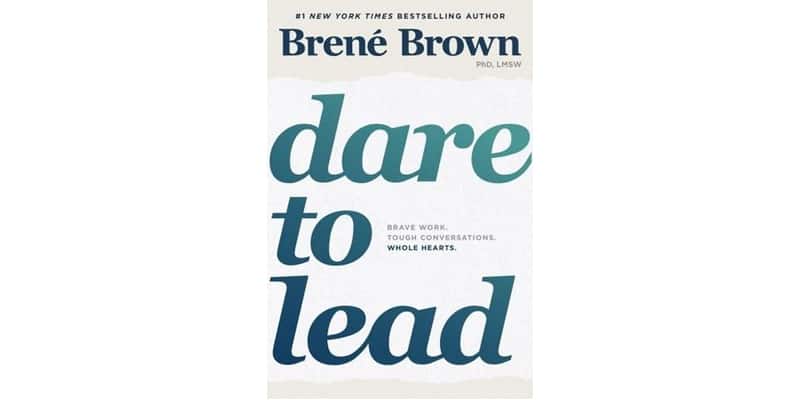
I could put any number of Brené Brown books on this list, because all of her words will help us become better parents of our girls. I chose this one because I want to believe that she’s right: our girls can grow up to be society’s leaders without having to be assholes. Our girls can be empathetic, compassionate, accountable and vulnerable and use those skills to lead and help others. This book is basically an amalgamation of her other bestsellers, made a bit more corporatey. It’s a good summation of everything Brown has been teaching for years: you don’t need to be perfect to be excellent, practise vulnerability, own your mistakes, do what you said you’d do, choose courage over comfort and don’t judge others. All excellent principles to lead our girls.
Parenting a Teen Girl by Lucie Hemmen
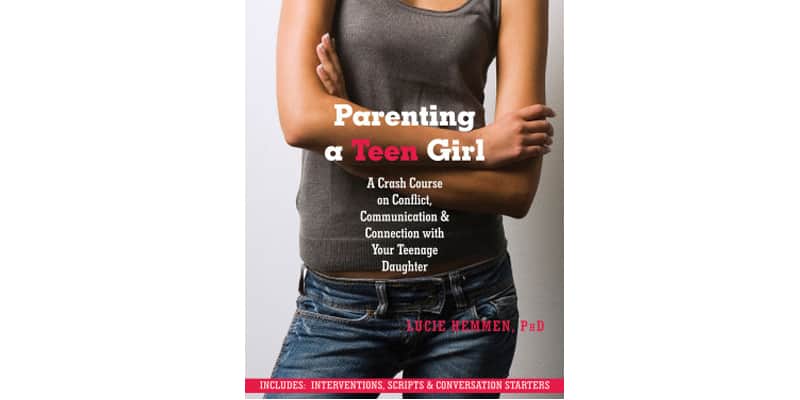
This straight-talking US book is subtitled “a crash course on conflict, communication and connection with your teenage daughter”, and indeed, ‘crash course’ is very fitting. It’s practically written in bullet point form, it’s so clear and concise. Clinical psychologist and mother of teens Hemmen really cuts to the chase, offering neat strategies for dealing with girl stuff like managing moods, dealing with criticism (from our girls towards us, naturally), and obsessive behaviour (including towards material items and relationships). There are a lot of practical strategies here, with exercises that encourage self-reflection and finding examples from our own lives. This book is excellent at reminding us where to focus our attention, and what to let go of.
Teen daughters should check out Lucie Hemmen’s new book The Teen Girl’s Survival Guide.
Queen Bees and Wannabes by Rosalind Wiseman
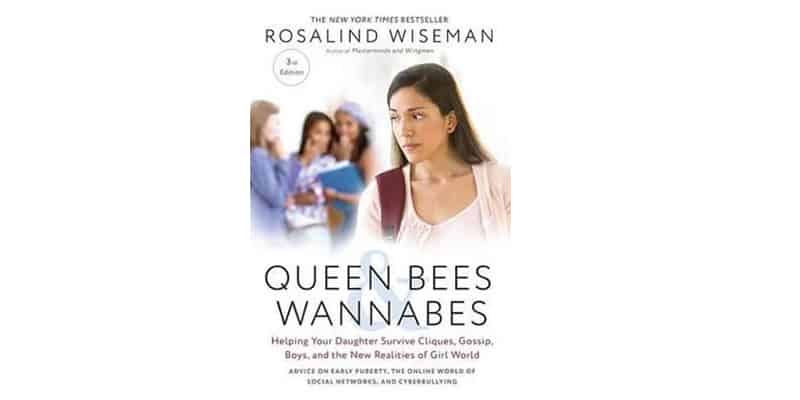
his is one of the ‘old guard’ of books about raising girls. It was written way back in 2009, when many of our daughters weren’t even born yet. It was the first book to lift the lid on girl behaviour – ditching the ‘sugar and spice’ stereotype and reminding us that girls are powerful and capable. And, yes, sometimes petty and clichey and rather nasty when they want to be. Wiseman updated the book in 2016, so the third edition is the one you want to get your hands on – my first edition copy which I bought secondhand in 2014 talks about video tapes and home phones. While the latest edition could no longer be called groundbreaking, it’s still worth owning for Wiseman’s soothing, gonna-be-okay voice. She’s well-named!
Get Out of My Life by Suzanne Franks and Tony Wolf

While this book is aimed at parenting both genders, I thought I’d include it. God knows, we need more humour in our life when parenting adolescent girls and this UK book is a good laugh. It’s also genuinely insightful and helpful and been around the traps – it was first published waaaaay back in 1991 (and back then “Alex” was “Cheryl”). Clinical psychologist Wolf and journalist Franks don’t hold back in examining youf cultcha and happily remind us that it really is them, not us. The authors are clear in their message that runs throughout the book: know your values, stand by them, be firm in sharing them with your kids, and then accept that they will make up their own minds. We can’t control our kids, nor would we want to.
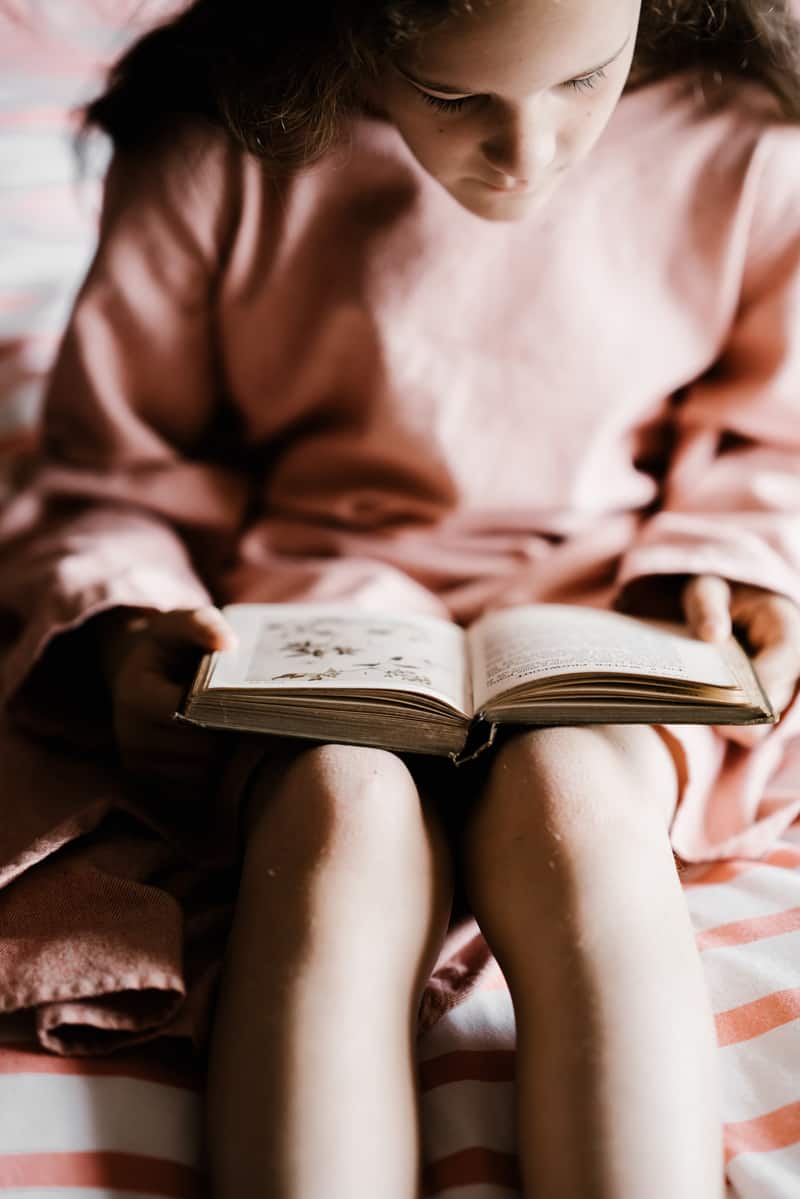
The Myth of the Perfect Girl by Ana Homayoun
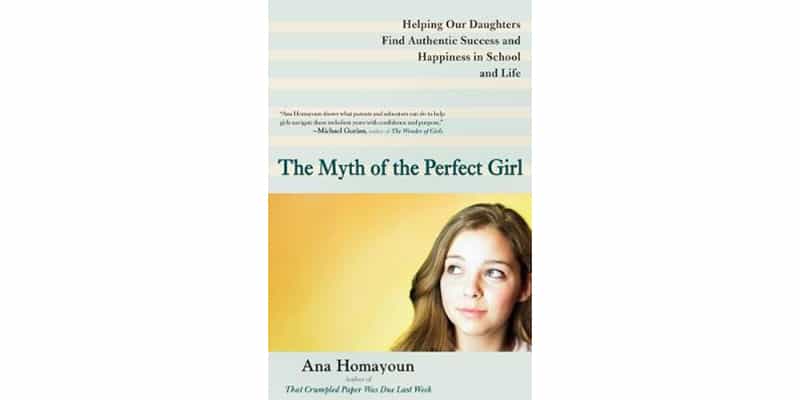
This book takes a very similar line to Rachel Simmons’ Enough As She Is (see review above). This one came first. It’s not as slick as Simmons’ book – the writing is clunkier and it’s not as neatly organised – but Homayoun is very insightful, witty and compassionate. Her insights into why girls are so critical of themselves and what we can do to help shift their focus are wise and helpful. As are her techniques for examining our own relationship with success and self-criticism in order for us to best guide our girls. The book is overly long – what needed to be said was all out by three-quarters through – but definitely worth a read.
UnSelfie by Dr Michele Borba
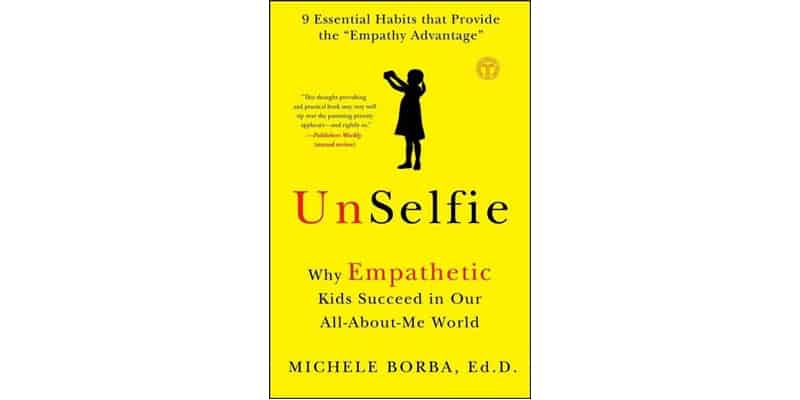
A book about cultivating empathy in our children seems way more refreshing than it should be. As someone who genuinely used to worry that teaching my kids to wait their turn seemed to be disadvantaging them (we’re talking less turns on the slippery-dip, so we are going back a way), I am very interested in the role empathy has to play in this ‘me, me, me’ culture. Educational psychologist Dr Borba has picked up on the statistic that kids today are 40% less empathetic than they were thirty years ago and examined what we can do about it. Sadly, I’m not certain that Borba has come up with the answer. She fixates on phones being the reason why kids have switched off, and I’m not convinced she’s totally right. Her solutions, too, seem a bit trite – kids setting up campaigns to help the homeless, or RAOK days, etc. I don’t think being empathetic lies in ‘big gestures’ like that. That said, a big part of the book is about teaching kids self-regulation and resilience, and I was totally on board with her discussion there.
Dear Ijeawele, or a Feminist Manifesto in Fifteen Suggestions by Chimamanda Ngozi Adichie

This is a beautiful book, somehow poetic despite the perfectly matter-of-fact writing and stark truths. Feminist author Adichie is writing to her friend about how to raise her daughter a feminist. It’s powerful stuff, the kind of writing that fine-tunes your bullshit o’meter and makes you more aware of everyday inequality. When writing about self-worth, she says “Teach her that if you criticize X in women but do not criticize X in men, then you do not have a problem with X, you have a problem with women.” On gender roles, “The knowledge of cooking does not come pre-installed in a vagina.” And, my favourite, “Because you are a girl is never a reason for anything. Ever.” Whatever your views on feminism, this book will remind you to remind your girls (and boys!) that they are not a gender. Buy it for you, buy it for your girl, buy it for everyone you know.
Becoming by Michelle Obama
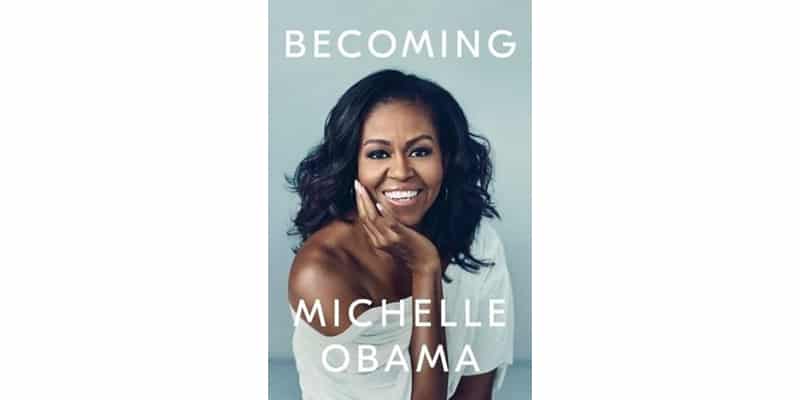
Another ‘non-parenting’ book makes the list. You’ve probably read this one, so you know why it’s here already. Michelle Obama needs no introduction and her book is equally magnificent. Her biggest concern when raising her two daughters under the world’s spotlight was that they would never be able to experience the same independence that she was raised with. “I loved any time I could glimpse my daughters in the context of their own worlds,” she writes. “Free from the White House, free from their parents, in the spaces and relationships they’d forged for themselves.” That alone is good enough reason for this book to make our list (though, read it, as there are so many more). We need to learn to leave our girls be to find their own spaces and relationships, away from our spotlight.
Other books about raising girls that are worth a look:
- No More Mean Girls by Kate Hurley
- Dial Down The Drama by Colleen O’Grady
- You’re Wearing That? by Deborah Tannen

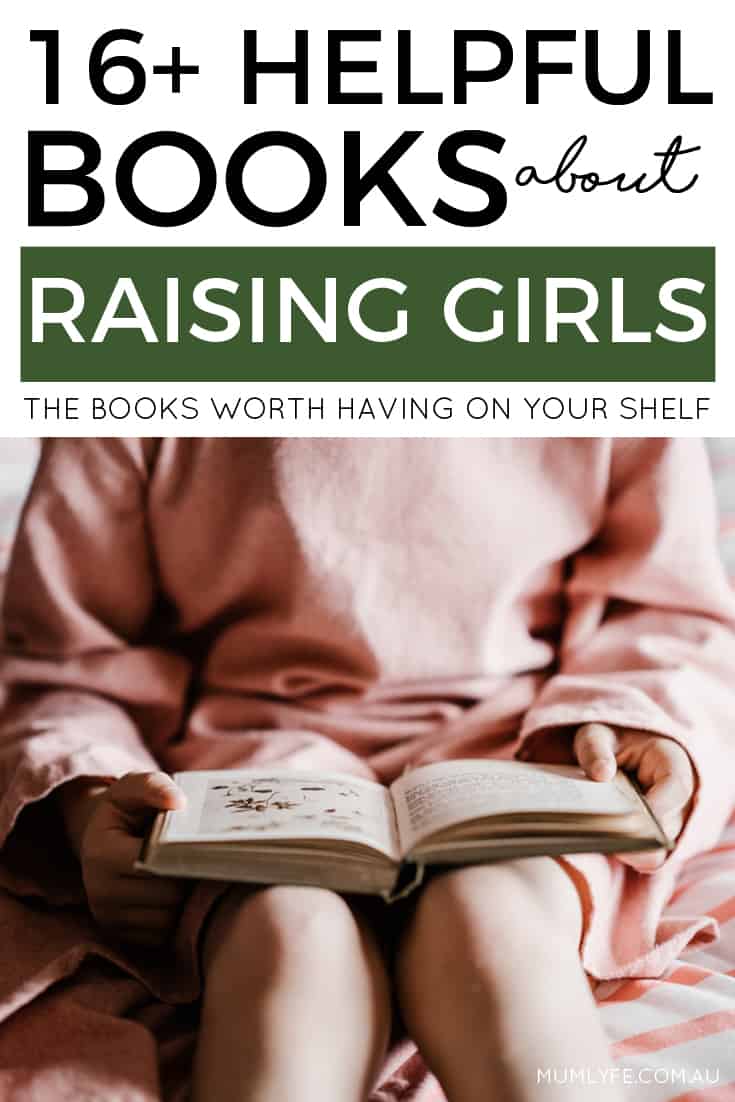
What are your top recommendations for books about raising girls?
Non-cover images by Annie Spratt; cover images supplied.


carly
Tuesday 28th of April 2020
Thanks so much for this list..so so helpful.
Bron Maxabella
Thursday 30th of April 2020
Very glad to hear that, Carly.